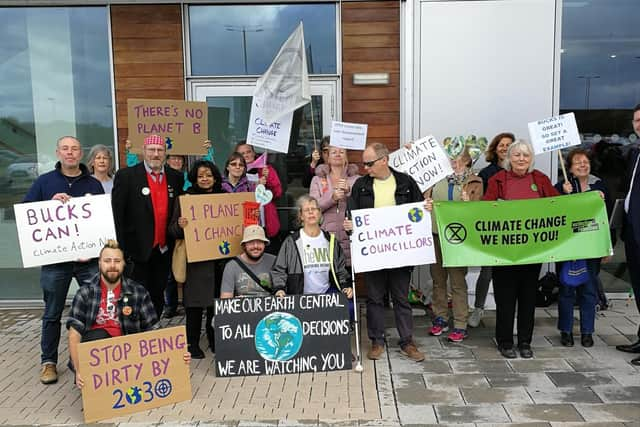'Grandchildren will curse us' says councillor on new council's climate change plans
and live on Freeview channel 276
Liberal Democrats Councillor Steven Lambert said: “Regarding climate change, what we have in the corporate plan in front of us is just a list of stuff we're already doing and no ambition,” adding, “If we're not careful we're not going to have a planet to carry on managing, so we really needed to have more ambition in there.”
But it was the Green Party Councillor David Lyons who really raised the temperature in the room when he said: “I'm extremely disappointed with the response on climate change. The suggestion that you don't have to decide any policies or have any intent but rather a vague, wishy-washy mother Hubbard and apple pie target that Councillor Hussein mentioned - it just doesn't wash for the people of Buckinghamshire.
Advertisement
Hide AdAdvertisement
Hide Ad“There's no effective declaration by the council of a recognition of the extreme crisis we are facing. The young people in the community recognise that their future is at stake and if you people do not recognise this and declare some real intent your children and grandchildren will curse you and curse us.”


The Bucks Herald spoke to the leader of the Shadow Executive, Martin Tett, after the meeting about the concerns raised. He said to us: “There are different views on what can be achieved on climate change at a local level. Some people believe that setting a really demanding target like 2030 to go carbon zero is the right thing to do and is achievable, there are others who quite frankly support the Government's point of view in terms of saying a realistic target which can actually be delivered is more likely to be 2050. I'm personally of the latter and I think 2050 is going to be really hard to achieve. It's going to mean major lifestyle changes for virtually everybody.”
We asked if it is not in fact nature setting the agenda rather than our economic targets, to which Mr Tett replied: “I think if you look at it, and I have looked at it quite extensively, the reality is climate change has accelerated dramatically since the 1970s which is fundamentally when parts of the world, particularly India and China, began to industrialise very heavily and we've seen since they've increasingly relied on fossil fuel emissions in those countries a dramatic rise in carbon, so something like 50% of all carbon emissions in the world comes from India, China and the USA.”
The numbers quoted by Mr Tett are accurate.
Human Rights organisation Amnesty International state on their website: “The Intergovernmental Panel on Climate Change (IPCC) report (from October 2018) gave the world a clear deadline to avoid catastrophe: greenhouse gas emissions must be halved from their 2010 levels by 2030 to avoid reaching 1.5°C (above pre-industrial levels). Our governments must therefore take immediate steps right now to change course.”